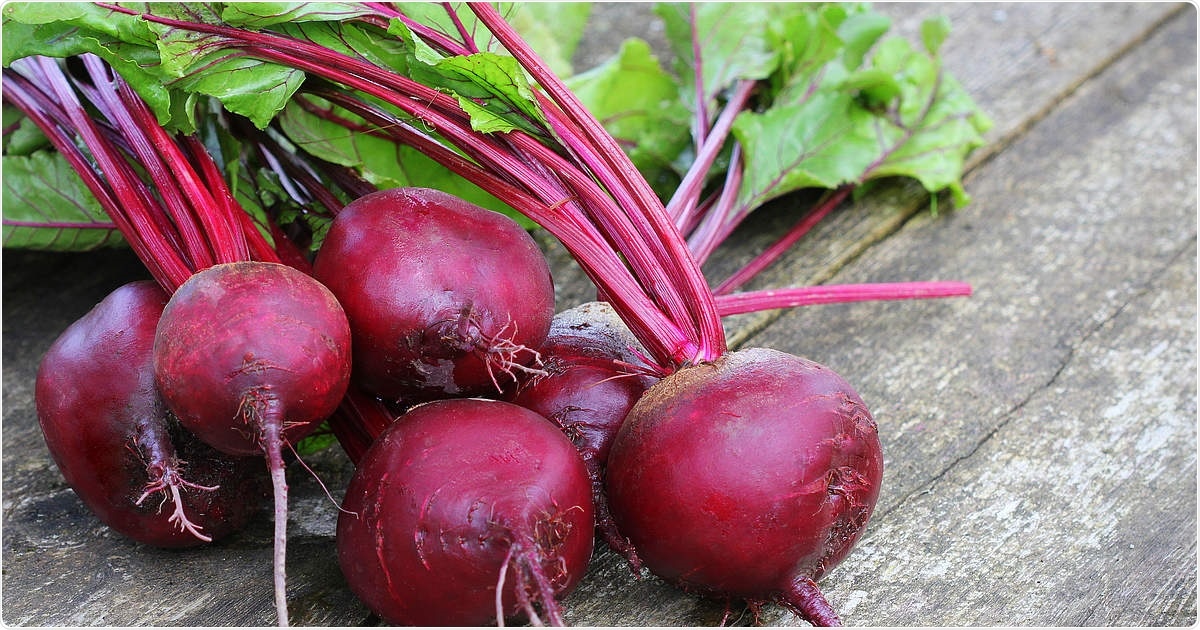A team of researchers, headed by Christian Gruber from the Institute of Pharmacology at the Medical University of Vienna (MedUni Vienna), has successfully isolated a peptide (a tiny protein molecule) from beetroot in a recent study.

Image Credit: Medical University of Vienna.
The peptide is capable of suppressing a specific enzyme that is responsible for causing the breakdown of messenger molecules in the body.
The beetroot peptide, owing to its pharmacological properties and specifically stable molecular structure, may be an excellent candidate for developing a drug to treat specific inflammatory diseases, for example, autoimmune and neurodegenerative diseases.
The peptide that appears in the roots of beetroot plants is part of a group of molecules that are used by plants, among others, as a chemical defense against pests, like bacteria, insects, or viruses.
By analysing thousands of genomic data, our team was able to define a number of new cysteine-rich peptides and assign them phylogenetically in the plant kingdom. In this process, our attention was drawn to a possible function as so-called ‘protease inhibitors’. The beetroot peptide can therefore inhibit enzymes that digest proteins.”
Christian Gruber, Institute of Pharmacology, Medical University of Vienna
The beetroot peptide particularly blocks prolyl oligopeptidase (POP), which plays a role in the breakdown of the body’s protein hormones and is thus able to control inflammatory reactions. POP is a highly-debated drug target for inflammatory and neurodegenerative diseases, like multiple sclerosis and Alzheimer’s disease, for instance.
“This means that, in future studies, this group of plant peptides called 'knottins', such as those found in beetroot could potentially provide a drug candidate for treating these diseases,” added Gruber.
Peptide can be detected in commercial beetroot juice
The peptide occurs naturally in the root vegetables but it can also be found in beetroot juice that is available in the market—although in very trace concentrations.
A pharmacologist at MedUni Vienna emphasized that, “Although beetroot counts as a very healthy vegetable, it would be unreasonable to hope that dementia could be prevented by regular consumption of beetroot. The peptide only occurs in very small quantities and it is not clear whether it can as such be absorbed via the gastrointestinal tract.”
Using Nature's blueprint
The study, which is being performed by Gruber’s laboratory, applied the concept of harnessing Nature’s blueprint to design drug candidates.
We are searching through large databases containing genetic information of plants and animals, decoding new types of peptide molecules and studying their structure, aiming to test them pharmacologically on enzymes or cellular receptors (such as one of the prominent drug target classes, the so-called G protein-coupled receptors) and finally analyzing them in the disease models.”
Christian Gruber, Institute of Pharmacology, Medical University of Vienna
Promising drug candidates are chemically produced in a somewhat altered form based on the natural product, with the aim of acquiring improved pharmacological properties.
Such a concept seems to be effective—some years back, the researchers produced a drug candidate, called T20K, for multiple sclerosis with a synthesized plant peptide (cyclotide). This drug has now been successfully tested in a Phase 1 trial by the Swedish company Cyxone under a MedUni Vienna licence, and is presently being prepared for a Phase 2 clinical trial.
Source:
Journal reference:
Retzl, B., et al. (2020) Discovery of a Beetroot Protease Inhibitor to Identify and Classify Plant-Derived Cystine Knot Peptides. Journal of Natural Products. doi.org/10.1021/acs.jnatprod.0c00648.